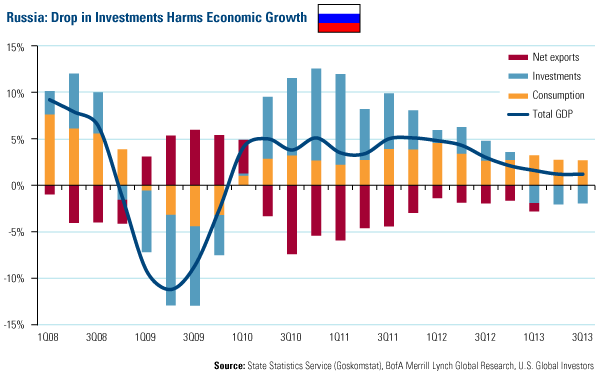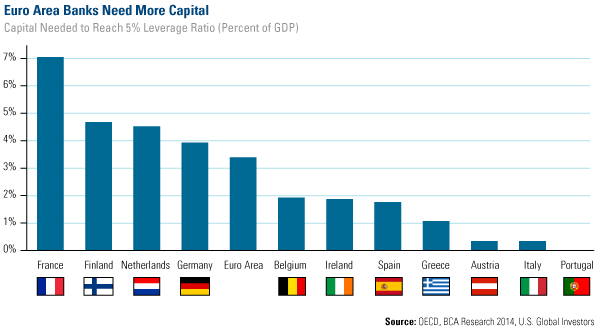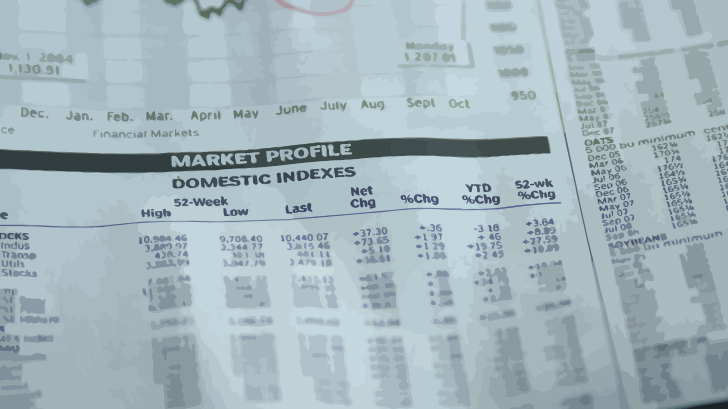Emerging Markets Radar (January 20, 2014)
Strengths
- Poland's core inflation declined for the second consecutive month in December, easing to 1 percent from 1.1 percent in November and 1.4 percent in October. As a result, Poland’s central bank reiterated its pledge to keep borrowing costs at a record low, at least until mid-2014 in order to sustain economic revival.
- The wholesale price index (WPI), India’s gauge of inflation, rose 6.16 percent in December, down from a 7.52 percent increase in November, and below the 6.90 percent median estimate in a Wall Street Journal poll. The reading is easing pressure on the central bank to hike rates. With industrial output shrinking 2.1 percent in November, business has been clamoring for a cut in lending rates to help boost growth.
- Despite a continued slowdown in bank loans and money supply growth in China, shares of bank lending to households reached 42 percent in 2013, up from 31 percent in 2012 and 26 percent in 2009, to the benefit of small private companies and general consumption. For the week ended January 17, China stood out with $0.41 billion in equity fund inflows, while overall emerging markets saw another $1.3 billion in outflows.
Weaknesses
- The mix of rising prices and foundering growth, known as stagflation, is depriving Russia’s central bank of monetary tools used to boost demand. With inflation running above the central bank’s target for the sixteenth month in a row, Elvira Niabullina, Bank Rossii Governor, has been unable to cut rates as a measure to spur economic growth. The chart above shows the resulting decline in investment, partly caused by higher rates, and its negative impact on GDP growth.
- Turkey's lira weakened to near record lows on Tuesday after data showed the current account deficit had widened in November. The current account shortfall widened to $3.9 billion in November from $2.9 billion the previous month, according to the central bank. The currency traded as low as 2.23 per dollar, from 2.15 at the beginning of the year.
- Singapore’s November retail sales declined by a worse-than-expected 8.7 percent year-over-year driven by lower car sales, as its government tightened curbs on vehicle loans earlier last year. This included a 40-50 percent down payment and maximum five-year loan tenure.
Opportunities
- Bond sales by emerging markets are up 21 percent to $55 billion this month, the busiest start to a year on record, as both government and corporate borrowers in developing nations flood markets before reductions to Federal Reserve monetary stimulus drive up funding costs. Demand by lenders was evidenced last week when Ireland tapped the international markets for the first time in two years, receiving offers for seven-times the size of the planned issuance.
- Indonesia’s president signed the raw nickel ore export ban into law, representing a key tail risk with nickel prices, given the fact that Indonesia supplies approximately 25 percent of global nickel. Additionally, China’s nickel pig iron industry relies on Indonesian imports for 60 percent of its raw materials. The greatest opportunity at the moment is for Russian producers who have direct export channels, to supply Chinese demand after this market-disruptive event.
- Further penetration of smart phones, proliferation mobile payment apps and 4G network roll outs in China, should drive more rapid adoption of mobile e-commerce in the country. As of the third quarter last year, mobile e-commerce transactions already comprised 9.5 percent of total e-commerce volume, up from just 0.7 percent in the first quarter of 2011. Leading mobile Internet players should benefit from this ongoing trend.
Threats
- According to BCA Research, the credit environment will remain a key headwind to growth in the euro area for at least the next couple of years. The euro region banks have trailed their U.S. counterparts in strengthening balance sheets and will require additional capital to boost capital ratios. The core, eurozone countries are in the worst shape, however, the capital needs of the peripheral country banks are more modest.
- Italian energy company Eni is yet another major business abandoning efforts to produce shale gas in Poland, raising questions over shale’s prospects elsewhere in Europe. Eni argued the geology was much more unfavorable than had been earlier thought, a statement made by other companies in the past. In addition, the government has struggled to come up with a new energy law, which has dissipated the initial excitement over the country’s shale prospects.
- Lingering uncertainty about the Fed’s taper schedule of its quantitative easing (QE) program remains a major source of concern for Southeast Asian countries in the near term, as skepticism towards any quick fix may prevent global capital from flowing back into these markets en masse.


















